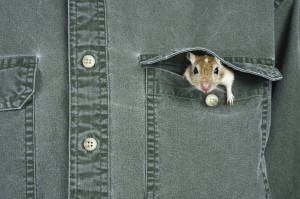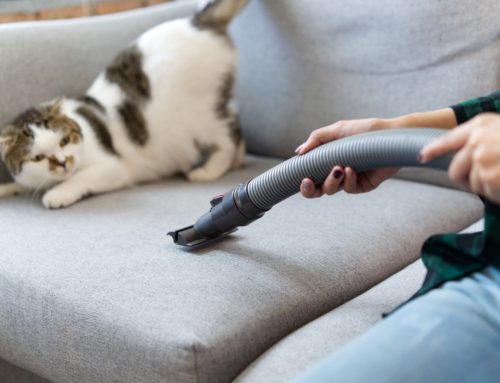 If you own a pocket pet like a rabbit, gerbil, hamster, ferret, or mouse, you are already in an elite club. Not everyone has the passion and know-how to keep one of these pint-sized critters. Keep reading to learn a few things that even you might not know about your fabulous pocket pet.
If you own a pocket pet like a rabbit, gerbil, hamster, ferret, or mouse, you are already in an elite club. Not everyone has the passion and know-how to keep one of these pint-sized critters. Keep reading to learn a few things that even you might not know about your fabulous pocket pet.
Pocket Pet Fact 1: Not All Vets Know How to Treat Them
Many people assume that just because a veterinarian has received his or her license that he or she can treat any type of animal. While this is technically true, many veterinarians have little or no knowledge regarding pocket pets and exotic pets.
If you have a pocket pet, look for a veterinarian with experience and an excitement for these special pets. This ensures that your pet’s doctor has the know-how and interest in helping you to provide good care for your pet. Billings Animal Family Hospital enjoys working with pocket pets and is happy to help you keep them healthy.
Pocket Pet Fact 2: Not All Pocket Pets Work in Every Home.
Most of our pocket pet species are actually wild animals that we have decided to welcome into our homes. Research the species that you are interested in owning before acquiring, if possible. Things to take into consideration include:
Pocket Pet Fact 3: Pocket Pets Aren’t Always the Best Choice for Children.
When it comes time to teach little ones some respect and responsibility, parents often think of small mammals as a good solution. Pocket pets and kids don’t always mix, though. While some can make great companions for little humans, others aren’t the best choice. Research the species you are interested in and remember:
Pocket Pet Fact 4: Good Care Goes a Long Way.
Individual species of small mammals have very different husbandry, or care, requirements. Learning about your pocket pet of choice through books, websites, breeders, and your veterinarian is very important. Be sure to know:
Poor husbandry is the number one cause of disease and illness in pocket pets. A little know-how can go a long way in being sure that these little critters remain happy and healthy.
Pocket Pet Fact 5: It is Difficult to Know When a Pocket Pet is Sick.
Pocket pets are wild animals, and like most wild animals they tend to hide signs of weakness. This means that it can be quite difficult to know when a pocket pet is sick until it is too late. Handling your pet frequently and paying attention to his or her normal habits is very important as are frequent check ups. Be sure to bring your pet in right away if he or she:
Pocket pets can be great additions to the family and are just as enjoyable as any “traditional” pet in the right hands. They definitely need a little different type of care, though. Hopefully by reading through our pocket pet facts you are better prepared to care for these sweet little creatures.






